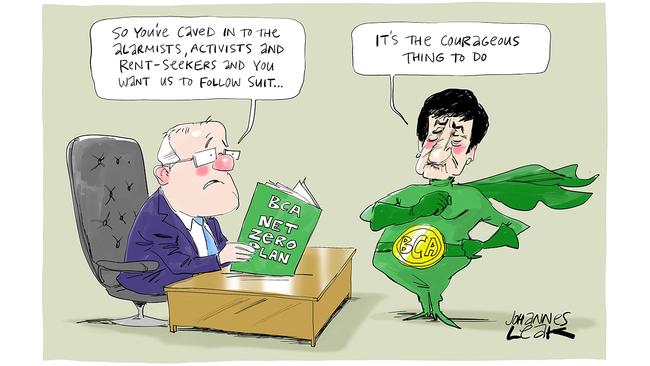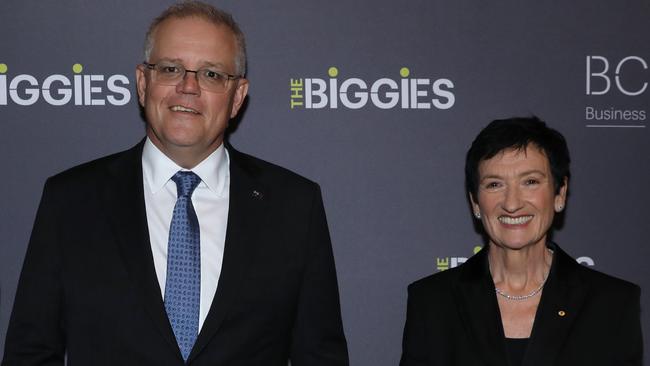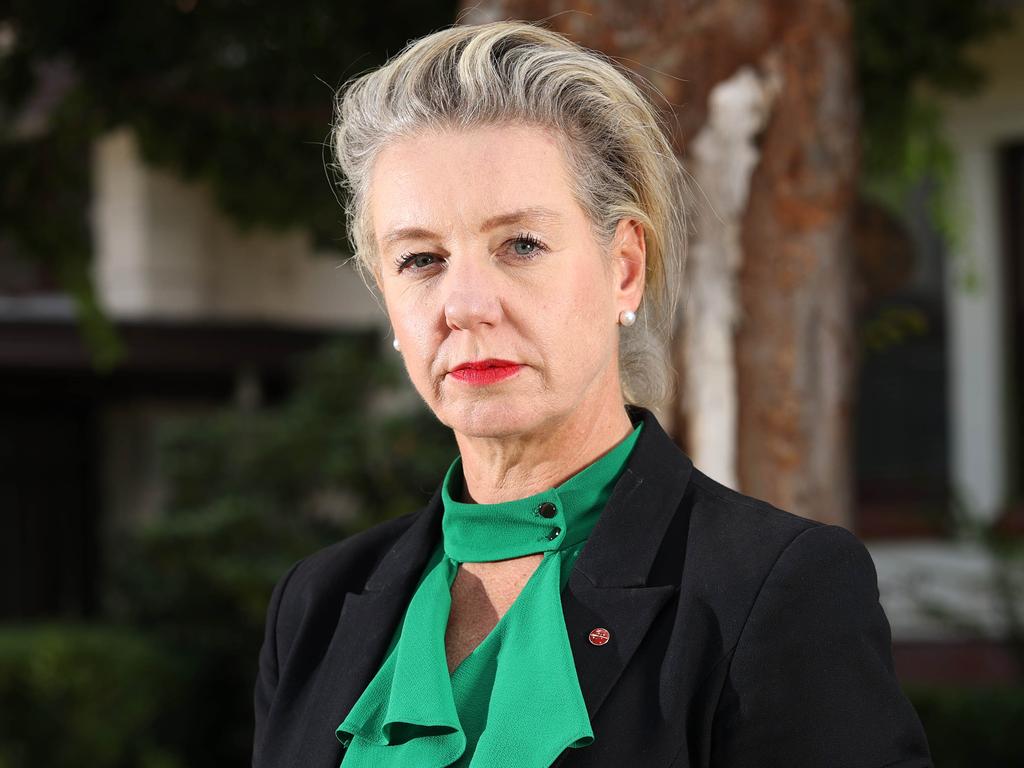
This is the obvious question the Prime Minister knows he must answer if he expects to win quiet Australians over to a climate policy requiring higher targets, deeper cuts and billions more in taxpayer expenditure than ever proposed by his predecessors, Kevin Rudd, Julia Gillard, Tony Abbott and Malcolm Turnbull.
But it isn’t just politicians in the hot seat; so are corporate leaders following a backflip from the Business Council of Australia. The BCA slammed Bill Shorten’s 2019 election plan for a 45 per cent emissions cut by 2030 as “economy wrecking” but now demands a 45 to 50 per cent cut by 2030. It is urging the Morrison government to commit immediately to net-zero emissions by 2050.
The BCA, representing Australia’s 100 or so biggest companies, claims “circumstances have changed” since then. Wrong. All that has changed is the politics.
US President Joe Biden is a climate warrior while British Prime Minister Boris Johnson is desperate for a diplomatic triumph at next month’s Glasgow climate conference. There are concerns Morrison may be asked to pay a blood price for the nuclear-powered subs deal.
The BCA’s about-face is being hailed as a free pass enabling the Morrison government to change its position without having to worry about the economic consequences of more drastic emissions cuts or political blowback. As if.
The BCA paper is shallow boosterism that should shame an organisation that led the intellectual charge for the economic reforms of the Hawke and Howard eras, and still was making good economic and political sense a decade back. It cites Deloitte Access Economics modelling purporting to show that achieving net zero by 2050 will provide a $890bn boost to the economy and 195,000 extra jobs by 2070.
Let’s pass over the implausibility of being able to model anything with precision 50 years hence. Unsurprisingly, the working papers for this modelling are not published; what is said, though, is that it’s based on “avoided warming damages to the economy” plus the “benefits of low-cost renewable electricity production”. That would be the ostensible benefits Britain is experiencing as a result of relying on renewables for up to 40 per cent of its power.
As Energy Minister Angus Taylor said this week, “reliance on gas imports … and a prolonged wind drought have plunged (the UK) into an extraordinary energy crisis”. He also said: “The UK’s energy crisis has literally stopped industry in its tracks. Jobs are uncertain, production of critical outputs has been paused (and) bills have skyrocketed.”
But none of this bothers the BCA or, so it would now seem, the Morrison Liberals. That’s because, as the BCA claims, technological change, especially “green hydrogen” – or hydrogen produced using renewable energy – is going to drive our reliance on fossil fuels (mainly coal) for about 70 per cent of our electricity to under 15 per within a decade.

This is notwithstanding the caveat from the International Energy Agency – effectively exploding the premise of the BCA report – that “reaching net-zero emissions will require the widespread use after 2030 of technologies that are still under development”. The IEA says: “In 2050, almost 50 per cent of CO2 emissions reductions … come from technologies currently at demonstration or prototype stage.”
In other words, Australia is being asked to jeopardise affordable and reliable fossil-fuel-based power now in the hope something will be developed to replace it sometime in the future, demanding a leap into the dark. This is economically irresponsible but politically it’s also almost bewilderingly stupid.
But it won’t be long-gone boards and chief executives that will pay the price but the Coalition and, in real terms, the small business sector (which can’t survive passing on every climate cost to consumers) and households on low and fixed incomes.
It is building as an almost perfect storm for Morrison; and it’s far more than just a party-room showdown between “modern Liberals” from rich, Tesla-driving electorates in the leafy suburbs and the disparaged but politically astute redneck Nationals representing coalminers and the poorer regional seats.
If it were, it might be fixable by another round of rural pork-barrelling or, better, by opening some new low-emission coal-fired power plants to keep power affordable and reliable while transitioning to nuclear power in coming decades. At least that would mean Morrison’s fight is with the Labor Party rather than within his own team.
Instead, there’s something far more important at stake here. Politicians with elastic principles and no conceivable convictions are what drive our despair about public life. Apart from a bedrock preference for freedom and a commitment to budget responsibility (both of which have been tested almost to destruction by this pandemic), this government was elected to end Labor’s emissions obsession.
Indeed, even before that, Rudd’s flawed carbon pollution reduction scheme, which Turnbull crossed the floor to vote for, only hastened Rudd’s demise. Gillard just limped over the line when she promised “no carbon tax under a government I lead”. Breaking this promise helped to secure Abbott’s landslide win when he vowed to repeal it. In 2016, Turnbull narrowly survived losing 14 seats because the Nationals kept his green-left zealotry at bay. When it came back again in 2018, the party room handed his job to Morrison, who won a miracle victory in 2019 by standing firm against Shorten’s uncosted emissions policy.
That’s the political reality of the past 20 years in terms of real votes cast at real elections, not opinion polls with loaded questions designed to build climate crisis drama in the media. That Australians care about the environment is not the issue; they do, and our country has an extraordinary record of conservation.
But net zero by 2050 isn’t just an environmental issue. It’s an economic and national security issue, too. That is what’s at stake against a background of global capital rent-seekers – the billionaires, bankers and big corporates, all desperate for another way to make money by way of global taxpayer trillions and consumers bearing the brunt of soaring costs for life’s essentials.
It is not a question of should we protect our environment, that’s a given; it’s how we do it that’s the issue. Making our nation poorer and our energy security more precarious at one of the most volatile times in our history defies sense.
This is a government with no seats to spare, seeking a fourth term on a thin record, that has all but exhausted the goodwill of its natural supporters. By continually ruling out nuclear power Morrison has brought many to the point of no return. Leaders lead, and followers head to Glasgow.







How can something be dead wrong two years ago – in the words of Scott Morrison, “a reckless target … (that) will come at a tremendous cost to Australians” – but now be absolutely right?